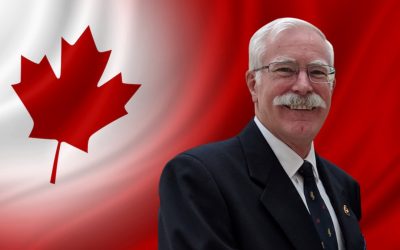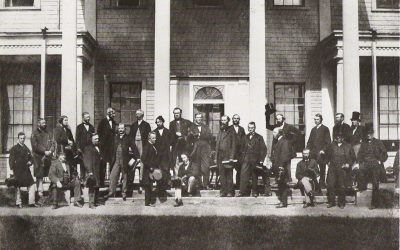
IN 1995, the Wall Street Journal, pondering Canada’s economic slump, bottomless fiscal deficit and towering public debt, judged that America’s northern neighbour had become “an honorary member of the Third World”. Four years earlier, The Economist had fretted that Canada was “on the brink of bust-up”. We quoted a Canadian who compared his country’s federation to a “boring party where the guests are too polite to leave. However, when the first guest makes a move to go, the others each claim other engagements and make a quick exit.” Still a fair description? Today’s Canada is neither boring nor so exciting that it is on the brink of disintegration. Indeed, a cautious case can be made that Canada is now rather cool.
Part of what makes it cool is a certain boldness in social matters. Canada’s government has recently announced its support for pioneering bills to legalise gay marriage and decriminalise marijuana, both excellent liberal ideas. It has granted home rule and control over mineral rights to some of its indigenous Indians. While other rich countries suffer a racist backlash over immigration, Canadians welcome migrants and are proud of their tolerance and cultural diversity. This has turned Canada’s big cities into vibrant, cosmopolitan places. Canadian writers and other cultural figures enjoy unprecedented international success.
This social liberalism points to an increasingly self-confident country. Canada has at last tackled—or at least learnt to manage—the problems that beset it a decade ago when Jean Chrétien took office as prime minister. In 1995, a referendum on independence in Quebec was lost by only a few thousand votes. This year, the separatists lost power in the province after an election in which independence was barely an issue. Mr Chrétien can claim some credit: he has been a robust federalist, ramming through the Clarity Act, which places legal obstacles in the path of separation. And Quebec, in turn, has benefited from Canada’s economic turnaround.
Deficits have been left far behind and the public debt slashed. Since the late 1990s, Canada’s economy has outperformed the rest of the rich world. It no longer depends only on lumber, mining, oil and cars. Like any economy, Canada’s is vulnerable to shocks, such as the recent outbreak in Toronto of the SARS respiratory disease and a case of mad-cow disease which has curtailed beef exports. But Canada has begun to close the gap between its living standards and those in the United States. Though this gap, at 15%, is far from trivial, many Canadians believe that their public health care, better protection of the environment and lower crime rate make them better off than their southern neighbours. Throw in its social liberalism, and Canada’s “third way” looks to some like an attractive alternative to an increasingly conservative America. Certainly, Canadians themselves seem content. This week, Paul Martin took another big step on his irresistible journey to the prime minister’s office (see article). Though he and Mr Chrétien are personal rivals, they are the Liberal Party’s co-architects of Canada’s economic renaissance. Pundits expect Mr Martin to call a general election next year—and for the Liberals to win a fourth consecutive term.
The contrast across the 49th parallel between Canada and the United States makes for healthy competition in social and economic policy. But as with many a good-news story, Canada’s loses a bit of its lustre under closer inspection. People continue to vote with their feet: a few thousand Americans move north each year, but are still outnumbered by Canadians moving south—and not, probably, just for the sun. Though the poor fare better in Canada, the middle classes earn less and pay higher taxes. The Liberal Party’s domination of Canadian politics is far from being an unalloyed good. Without an effective opposition, much of the job of holding the government in check falls to the judiciary, policing a Charter of Rights which on one view, unlike America’s Bill of Rights, tilts too far towards the rights of groups rather than individuals.
Unfinished masterpiece
On top of this, there are some big things that Canada continues to get wrong, and other big things that could go wrong without preventive action. In general, Canada still taxes too much, invests too little, and enjoys a free ride in defence from the United States. Since the terrorist attacks of September 2001, security and defence are a special worry. Much of Canada’s economic success is built on a 1988 free-trade agreement that has seen a massive expansion in cross-border trade: the United States now takes 88% of Canada’s exports. Just-in-time production means that components can cross the border three times in the making of a car, for example. If security threats turn the border into a barrier, firms will think twice before putting a factory in Ontario rather than Ohio. That does not stop Canada from holding different views about the world from those of George Bush, but it needs to work harder than Mr Chrétien has done at keeping the trust of the United States.
Conversely, firms also need positive reasons to invest in a market that is only a tenth the size of America’s. This implies that Canada should continue with the tax cuts that Mr Martin launched as finance minister. At some point, however, this will damage the welfare state on which Canadians set such store. So far, the federal government has been able to balance its books mainly by passing this problem on to the provinces, whose finances are poised to unravel. The cities, too, have demands: today, the most visible cleavage in Canada is not between French-speaking Quebec and the English-speaking rest, but between five large urban areas (dynamic, successful, with many immigrants but with strained public services) and the rest (mainly rural, declining economies with high unemployment, kept alive by federal aid).
To keep its new cool, Canada must therefore overhaul the way its government allocates power and money. Quebec’s new Liberal government could lead the way: it wants the private sector to help to deliver public services, as well as some further devolution. The rest of the country should follow. Canada has turned a corner. But it is not yet time to abandon its new spirit of risk-taking and experimentation.


